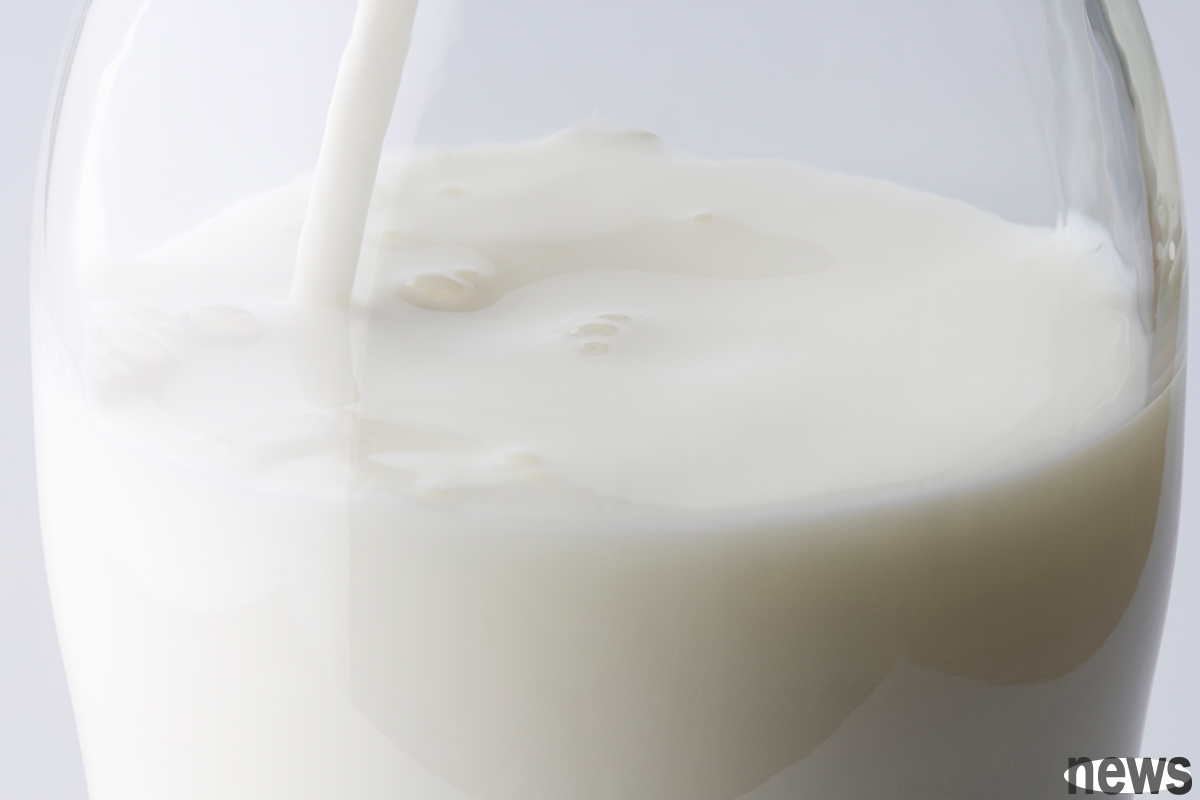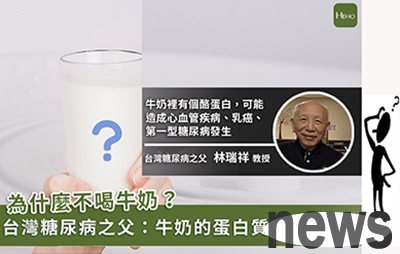
Reader Kevin used the website’s “Contact Me” to ask me what I think about an article published in “Yahoo! News” on April 14, 2020. Three days later, reader Ching So also used "Contact Me" to ask me what I think of the same article, but he asked in more detail. He said:
Professor Lin,Today, a friend posted an article saying that today's milk is very related to the formation of diabetes …
And milk is almost a must-drink drink for every household today. I was very shocked to hear this. I wonder if this kind of explanation is rooted in the eyes of experts? How should we carefully choose milk products?
I am embarrassed to swear. I also thank you for your persistence in breaking myths for the public in this world of powers that are full of business interests. I admire your behavior very much, only talking about science and not about anything else. It is a clear stream in the world. In this era of political dominance, you are the best young people. Thank you!

The link above opens an article published in Heho on April 15, 2020, with the title "I have been committed to not drinking milk for more than 10 years! The father of diabetes in Taiwan: The more milk you drink, the more patients with type 1 diabetes in children may be. The article in "Yahoo! News" was reprinted, but I don't know why the reprinted article was published one day earlier than the original article.
No matter what, before I discuss the content of this article, I would like to make three statements:
1. I have published more than 30 articles related to milk on this website, and in the first article (Milk causes cancer?), I said: "I personally don't drink milk. It's not because I'm afraid of cancer, but I just think that the nutrition of "eat &rdquo" is enough, so I don't want to drink it anymore to avoid overdose." So, it is impossible for me to protect milk because I have the habit of drinking milk.
2. The title of this Heho article is "Children's Type 1 Diabetes", but reader Ching So and several readers who posted their responses in Yahoo! News clearly misunderstood that this Heho article is talking about the more common "Type 2 Diabetes" (95%).
3. There is a vague adverb in the title of this Heho article, but readers obviously ignore it, which makes it become tight. In fact, the kinds of diseases mentioned in this article are just "possible".
The male protagonist of this article is Dr. Lin Ruixiang, and the content of the article will also make people think that Dr. Lin Ruixiang is expressing opinions on the harm of milk to health. But in fact, the information about "Milk Hazardous Health" provided in this article comes from the book "Devil in the Milk" (first released in 2007).
Based on the information from PubMed, the public medical library, Keith Woodford, the author of this book, has published only five research papers related to milk, and he is only the secondary author in these papers (neither the first nor the communication author). In other words, in terms of milk research, his academic status is not important.
"Devil in the Milk" refers to "A1-β casein". It says that after human digestive enzyme decomposition, A1-β casein produces a peptide chain with 7 amino acids, called "β-casomorphin-7" (β-casomorphin-7, simply BCM7), while β-casomorphin-7 increases the risk of type 1 diabetes, breast cancer, autopsy, cardiovascular disease, kidney disease, autoimmunity, and other diseases. It also says that some varieties of cattle secrete milk contains "A2-β casein", and this "A2-β casein" will not form β-Characterine-7. Therefore, if you want to drink milk, you should drink A2 milk instead of A1 milk.
However, most of the milk on the market is A1 milk, and the price of A2 milk is of course higher. So, this means that people who often drink milk are at risk of suffering from multiple diseases, and that is why this Heho article will cause concern. But is the so-called "A1 milk is not safe, and A2 milk is safe" true?
On February 7 this year, Critical Reviews in Food Science and Nutrition, a nutritional journal of high-quality materials, published a very detailed summary of β-Casomorphin-7, titled Occurrence, biological properties and potential effects on human health of β-casomorphin 7: Current knowledge and concerns (β - the occurrence of charcoalin-7, biological characteristics and their potential impact on human health: current knowledge and concerns). Regarding human health, its focus is:
1. The so-called safe A2 milk will also form β-Characterine-7, but the proportion is relatively low, about one-third of A1 milk.
2. The European Food Safety Bureau comprehensively evaluated the clinical data on the impact of β-Chenabeta-7 on human health in 2009, and found that β-Chenabeta-7 had nothing to do with the negative effects of sound.
3. In terms of the article reviewed in this summary article, there is no sufficient evidence to show that β-Characterine-7 is harmful to health.
Therefore, although this Heho article borrows the so-called "The Father of Diabetes in Taiwan" to increase the weight, the health information it conveys is evidence of weak.
Original text: Is milk related to the formation of diabetes?